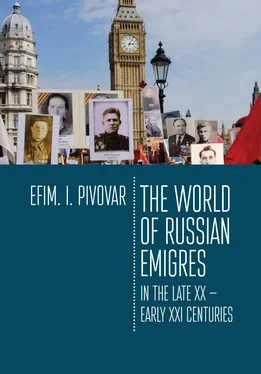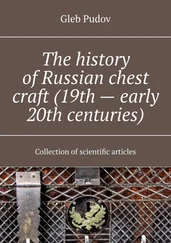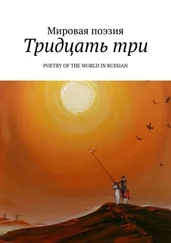An active promoter of the Russian world concept in the international information space is the Russkiy Mir Foundation and its centres overseas. It is noteworthy that the annual Assemblies of the Russian World are held on November 3, on the eve of the Day of National Unity. The Foundation, whose main task is to support and promote the Russian language worldwide, also implements the principle of moving to the future in line with a continuous historical tradition, focusing on new generations of the international community of the Russian world in all its diversity and uniqueness. Vyacheslav Nikonov, Executive Director of the Russkiy Mir Foundation, speaking at the opening of the Third Assembly of the Russian World in the MSU Intellectual Centre in 2009, said,
The Russian world is not a memory of the past, but a dream of the future of people belonging to a great culture, who are acutely responsive to injustice, who care about notions of honour, service, who are constantly striving for freedom. [16] Nikonov, V. N. (2010). Not a memory of the past, but a dream of the future. In V. N. Nikonov (ed.) Meanings and values of the Russian world. Collection of articles and materials of the round tables organized by the Russkiy Mir Foundation (4-14). Moscow: Russkiy Mir Foundation.
The concept of the unified cultural and spiritual space of the Russian world is extremely important for the further development of the domestic and foreign policy of the Russian Federation on compatriots abroad. It has been formulated for quite a long period of time. Obviously, the ideological and cultural gap that existed for decades cannot be bridged overnight. In the 1990s, when the Soviet historiography in Russia was being revised, including the period of the revolution and the Russian civil war, of the topic of the ideological confrontation between the USSR and Russian emigration remained highly politicized among the intelligentsia both at home and abroad. The dialogue with the Russian community living far abroad began to reach a qualitatively new, constructive level, when the Russian intellectual environment, education, and enlightenment systems and mass media established modern approaches to the Russian history which sought to create an objective picture of the historical process through a civilized and tolerant scientific discourse.
The visit of the President of the Russian Federation Vladimir Putin in November 2000 to Sainte-Genevieve-des-Bois Russian Cemetery near Paris was a symbolic step in this direction. The Russian President laid wreaths at the graves of Vika Obolenskaya, a prominent member of the French Resistance movement, and the great Russian writer Ivan Bunin. Standing at the graves of the White movement participants, Vladimir Putin expressed the sentiment that was later widely reported in the press: “We are children of the same mother, Russia, and it’s time for us to unite.” In 2003, during a meeting with representatives of the Russian emigration, again in France, at the Hotel de Ville in Paris, President of Russia Vladimir Putin reiterated that the memory of the tragic events endured by our country should become the basis for joint fruitful work of the Russian nationals and compatriots abroad for the benefit of the future Russia. The same idea was put forward in the opening speech of Vladimir Putin before the participants of the 4 thWorld Congress of Compatriots in Moscow on October 26, 2012:
You share a common concern for Russia’s future and its people, a commitment to be useful to your historical homeland, to promote its socioeconomic development and strengthen its international authority and prestige. [17] Speech by Vladimir Putin before participants of the World Congress of Compatriots (October 26, 2012). Retrieved from the official website of the President of Russia http://www.kremlin.ru/events/president/news/16719
In fact, the same call was addressed to the citizens of Russia and their compatriots living abroad, the appeal for a consensus and unification on the basis of a common goal which is the peace and prosperity of the Motherland, regardless of political views, religious beliefs, professional interests, etc. It is on the same basis that a modern course of the development of relations between Russia and the Russian community abroad at the state and social level is being shaped. This course is aimed at cooperation in the present and the future.
At a meeting with historians in Tyumen, Chairman of the Russian Historical Society Sergey Naryshkin also discussed the topic of historical understanding of the events of the revolution of 1917 and the ensuing civil war.
I believe that the centennial celebrations in 2017 should result in a deep reflection on the lessons learned and become a tribute to the memory of our ancestors regardless of their political beliefs. There should be no belated settling of accounts and division into who was right and who was wrong,’ said Naryshkin. ‘The revolution’s contemporaries have long been gone: both the heroes and the perpetrators on both sides. A century is enough to see those events not as a reason to split the society, but as a historical event, “a fact of biography”.’ [18] Speech by Sergey Naryshkin at a meeting with historians in Tyumen… Retrieved from the official site of Russian Historical Society http://rushistory.org/vystupleniya-s-e-naryshkina/v-tyumeni-sostoyalas-vstrecha-s-e-naryshkina-s-istorikami-urala.html
The participants of the V World Congress of Compatriots said they were seeking an informed, objective assessment of the events of the past. They also discussed a project aimed at building a National Reconciliation monument to the centenary of the October Revolution. Prince Nikita Lobanov-Rostovsky, who offered this idea, stressed in his speech that there could be no unity without tolerance and reconciliation. [19] The 5th World Congress of Compatriots Living Abroad demonstrated the unity of the Russian world. Retrieved from the web-site of the World Congress of Compatriots Living Abroad http://vksrs.com/publications/v-vsemirnyy-kongress-sootechestvennikov-prodemonstriroval-edinstvo-russkogo-mira/
A number of important thoughts on the vision of national history were expressed in the community of Russian compatriots at the VI Assembly of the Russian World, held on November 3, 2012 in Moscow under the motto Russian language and Russian history. The Director of the Institute of Russian History of the Russian Academy of Sciences Yuri Petrov, summing up the discussion on the Year of Russian History, stressed that the diversity of views in the scientific community is undoubtedly necessary for the development of scientific knowledge, but the pluralism of opinions does not cancel the task of developing coordinated positions on key issues in the Russian history:
Unlike the elites, in science, not only diversity is not prohibited, but even welcomed. All this is good,’ said Yuri Petrov. ‘But I believe we need a new national history, and the Institute of Russian History has suggested such an initiative. We have spearheaded this project which should unite all experts on Russian history including Russian nationals, members of the Russian world, and the best foreign professionals. [20] The 6th Assembly of the Russian World (November 3, 2012,). Discussion “Year of Russian History”: Transcript. (P. 21).
The world of Russian compatriots abroad is undoubtedly socially and politically heterogeneous when it comes to the historical retrospective and modern events in Russia and abroad. This heterogeneity often affects the internal life of Russian-speaking communities, leads to controversy and disputes, instability in the composition of coordination councils and other representative bodies in a given country, etc. At the same time, almost all institutional structures of Russia Abroad (Russian Centers, schools, clubs, etc.) directly engage with Rossotrudnichestvo and institutions of the Ministry of Foreign Affairs of the Russian Federation, representative offices of the Russkiy Mir Foundation, or with public organizations close to Russia in spirit and nature of their activities.
Читать дальше












